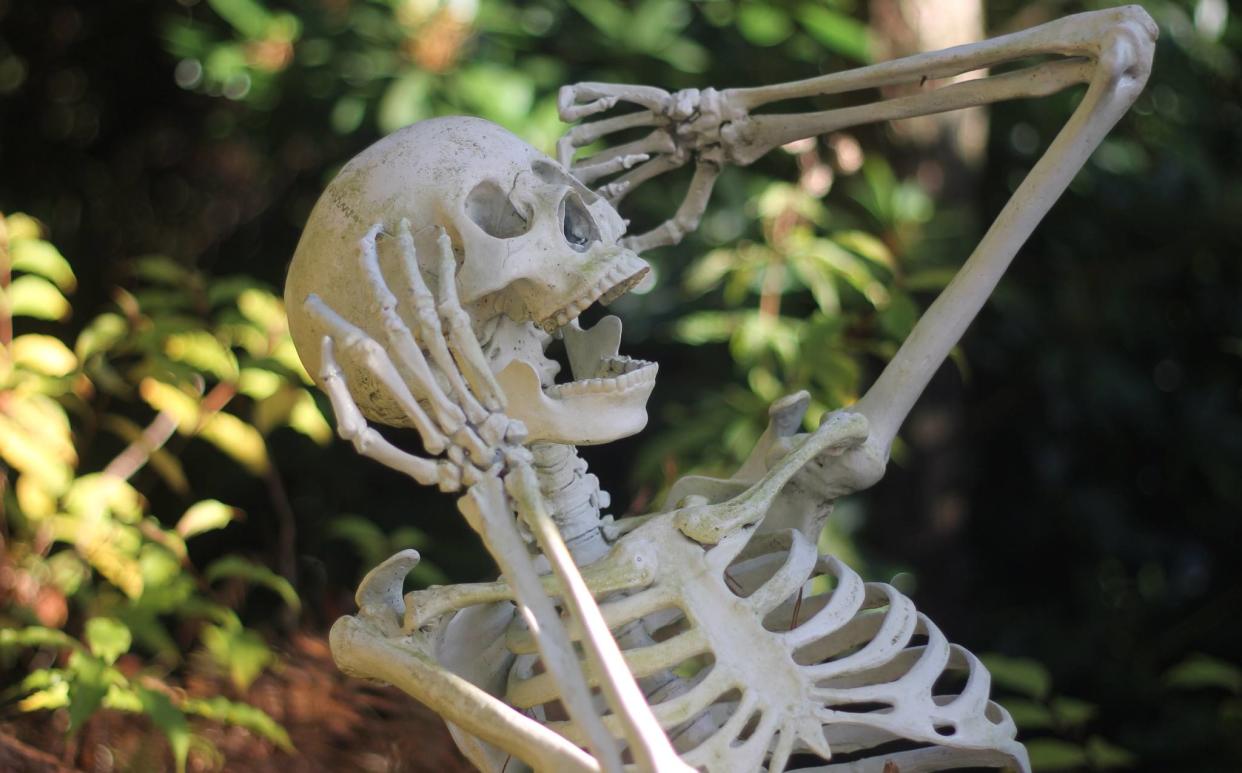TikTok's teenage filter has us confronting our own mortality

People on TikTok are getting emotional over an AR filter that makes you look like a teenager. Juxtaposed one beside the other, the filter shows you as you are, and then a version of you that has perfectly smooth skin and a strange youthful innocence.
The filter has sparked a surprisingly wide range of emotions.
"I had not seen her in a very long time," wrote a TikToker in a post with over 500,000 views. "Yes... I cried." In a video with 1 million views, another user wrote, "This filter gave me the ability to finally speak to my younger self," reflecting on how much she had grown since leaving an abusive living situation.
At the same time, others have filmed TikToks making fun of dramatic reactions to seeing a "younger self," while some people joked about how being a teenager doesn't mean you have flawless skin -- it probably means you can't keep your acne under control.
@kasiadollka omg my dad's reaction to the #teenagefilter made me tear up 😭
We know that social media can make us feel bad about our appearance. Only in this case, instead of comparing ourselves to others, this filter drives us to compare ourselves to who we were in the past. Still, it's a warped sense of reality -- you probably didn't look like a baby cherub as a teenager, and you might have wrinkles now... but you're probably a lot more well-adjusted with a lot less chemistry homework.
But for many users, it's not the baby-smooth skin that makes them feel emotional. Rather, the filter spurs a sense of grief over the regrets they have about not enjoying life when they were younger, or the hard decisions they've had to make as an adult. A lot of these videos are set to the song "The Freshmen" by The Verve Pipe (which shockingly is not the same band that wrote "Bittersweet Symphony"). The brooding 90s alt rock song has an apt chorus for the emotions that are bubbling up for Gen Xers: "For the life of me I cannot remember/What made us think that we were wise and we'd never compromise."
@uhhhuhhunney Lived in the past for about 30 seconds or less. To think about the last time i looked so young and what i had endured up to that point. It seemed like my smile never lost its life but that sparkle in the eye had already been gone for so long. 20 years past and even more endured i wonder what will be in 20 more years. #teenagers #teenagefilter #teenagelookfilter #teenagerfilter #abuse #domesticviolence #death #surviving
Though these TikToks are sentimental, this is far from the first time that an AR filter or app has gone viral to show us what we looked like in our youth, or how we might look when we're old.
Just months ago, fantastical AI-generated avatars were all the rage, though that trend has died down considerably. And every so often, a filter that makes you look like an animated Disney character will predictably go viral on Snapchat or TikTok, keeping our brain worms entertained for a moment until we get bored again.
These AR filters are more prone to going viral, though, since there's a smaller barrier to entry -- you don't have to download a new app, which is reassuring given the shady history of many viral photo editing apps. Some photo apps have been found to be vectors for malware, while in other cases, users have worried about what happens to the photos they upload into these apps. These concerns came up around Russia-based AI editor FaceApp, which later had to clarify in a statement that it might store updated photos in the cloud for “performance and traffic reasons,” but that most images are deleted within 48 hours.
Some users may have security concerns about TikTok regardless -- but TikTok claims that it is not collecting or storing our biometric data when we use these AR filters.
In any case, as you idly scroll through TikTok, just remember: We are all going to die one day!

